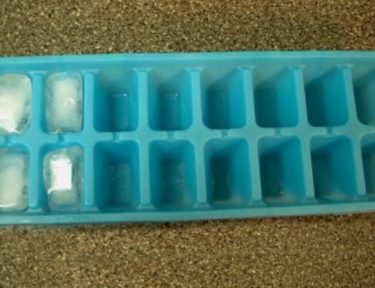Here’s How to Soothe Your IBS When It Seems Like Nothing Helps
Living with a condition that affects your daily life is no fun—ask anyone who has one. And Irritable Bowl Syndrome, or IBS, is the most common gastrointestinal disorder, affecting about 10-15 percent of people worldwide, according to the International Foundation for Functional Gastrointestinal Disorders.
Among the people who have it, 40 percent of people report their symptoms are mild, 35 percent have moderate symptoms, and 25 percent have severe symptoms.
No matter which bracket you fall into, IBS is no joke. It can cause all sorts of unpleasant symptoms, from extreme bloating and cramps to painful bowel movements and more. And the most frustrating part about it? There’s no magic cure for it. You really have to take a personalized approach to getting your symptoms under control.
But first, you have to determine which kind of IBS you have: IBS-D (Diarrhea) , where diarrhea is your prominent symptom, or IBS-C (Constipation), where constipation takes the lead.
Once you figure that out – and when you’re feeling like you’re about to lose it – you can start making moves to soothe your symptoms.
Help for IBS-D
The biggest thing people who have IBS-D can do is moderate what they eat. Certain foods make you go more than others. For example, most people with IBS-D need to be aware of eating too much fiber. (Fiber is still an important part of any diet; just don’t go overboard.)
The best kind of fiber for people with IBS-D is soluble fiber because it takes longer to leave your digestive system. You can find soluble fiber in foods like oat bran, barley, certain beans, etc.
If you find your symptoms aren’t going away, there are several over-the-counter medicines you can take, such as Pepto-Bismol or Imodium. This will help the diarrhea, but probably not other symptoms, like stomach pain or bloat. If you have severe IBS-D, your doctor may prescribe you something stronger.
Help for IBS-C
Unlike people with IBS-D, people with IBS-C should try consuming more fiber, which can help soften your stool and help you go. Try upping your intake of foods like breads, whole grains, cereals, fruits, vegetables, and beans.
Of course, that doesn’t mean eating all of these in one sitting—add the fiber back into your diet gradually. Otherwise, you risk even more intense gas, bloat, and other un-fun bodily functions.
Additionally, try drinking less coffee or alcohol, and cut back on processed foods such as chips, cookies, and white bread. These can slow down your bowel movements, causing constipation to worsen.
If changing up your diet still isn’t working, ask your doctor about taking an over-the-counter laxative, or a prescription.
Help for both kinds of IBS
Stress worsen symptoms of IBS, so be sure to take time to yourself, breathe, and relax, if you can. Things that can help include exercise, meditation, listening to music, or taking a bath. If you’re able, set up an appointment with a behavioral therapist, who can teach you how to manage your stress, and thus, your pain.
For quick relief of symptoms such as stomach pain or bloat, try applying heat, such as a heating pad, to the pain. Additionally, some say drinking tea can help soothe your stomach (especially for those with IBS-C).
Once you can identify what triggers your IBS, then you can figure out how to go about managing your symptoms. To learn more about this, check out the video below, featuring Lisa Gangjhu, MD, a gastroenterologist at NYU Langone Health.
Do you or someone you know have IBS? How did you or they find relief?




